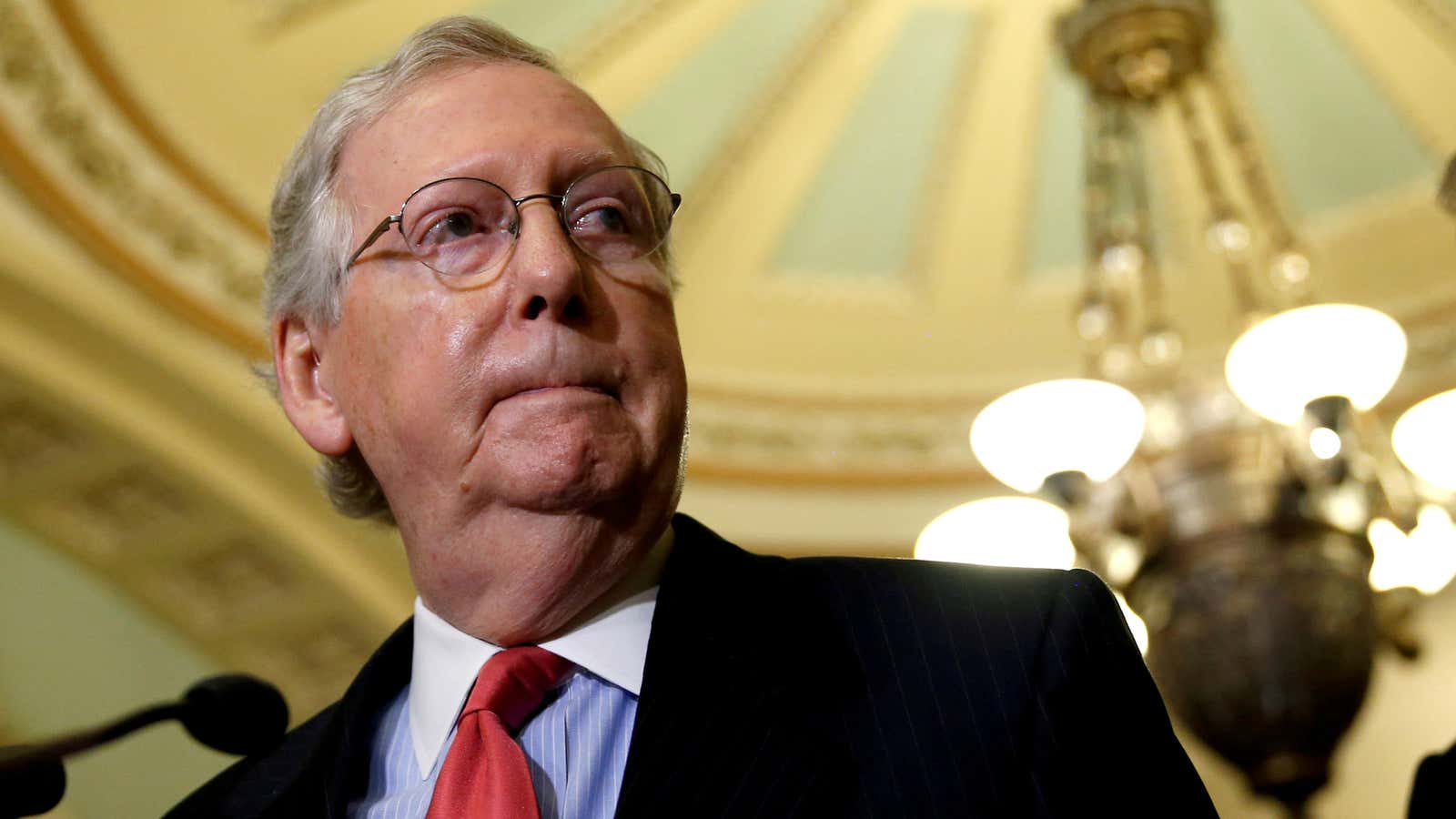Reading the news, you might think there is a debate about whether the Republican tax cuts will pay for themselves via higher economic growth. In reality, there isn’t.
All of the four widely respected organizations that have estimated the effects of the tax plan passed by the senate believe the it will lead to a large increase in the national debt over the next decade. The estimates range from a loss of $500 billion in government revenue from the Tax Foundation to some $1.4 trillion according to the Penn-Wharton budget model. (These are the most recent estimates from each group’s assessments; the bill will change a little as it passes into law.) In addition, every one of 38 esteemed economists surveyed on the impact of the Republican tax bill thought it would add to the national debt.
The reason is simple. The only way a tax cut would increase revenues would be if the taxes were so onerous that they discouraged work or investment. And while there are problems in the US tax code, that isn’t the case.
For example, cutting the corporate tax rate to 20% is likely to increase investment, but not in a meaningful way versus the current rate of 35%. If the government were cutting from a corporate tax rate like 75%, it would be a different story. So while all financial models agree that the tax cuts will stimulate the economy, all of the forecasts also acknowledge that the cuts won’t make the economy so much bigger that added revenue will replace what was lost.
Is this a problem? There is a strong argument that the US can afford increased budget deficits because the world’s faith in the US to pay its debts keeps its borrowing costs very low. But others argue that the US is playing with fire. They believe that eventually interest rates may rise and interest payments on the debt will comprise an increasing share of the budget when the country will need as much money as it can get to fund social security for retiring baby boomers. This is a debate actually worth having.
